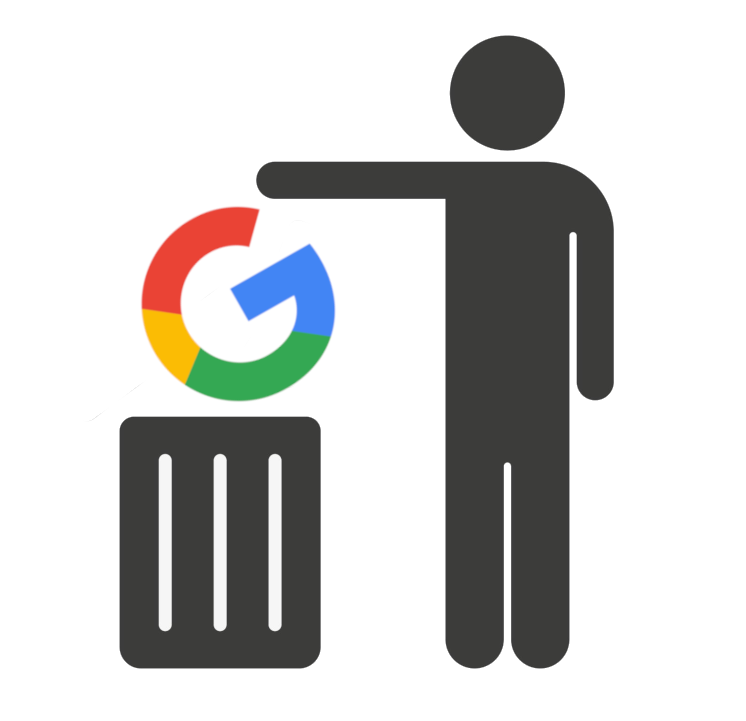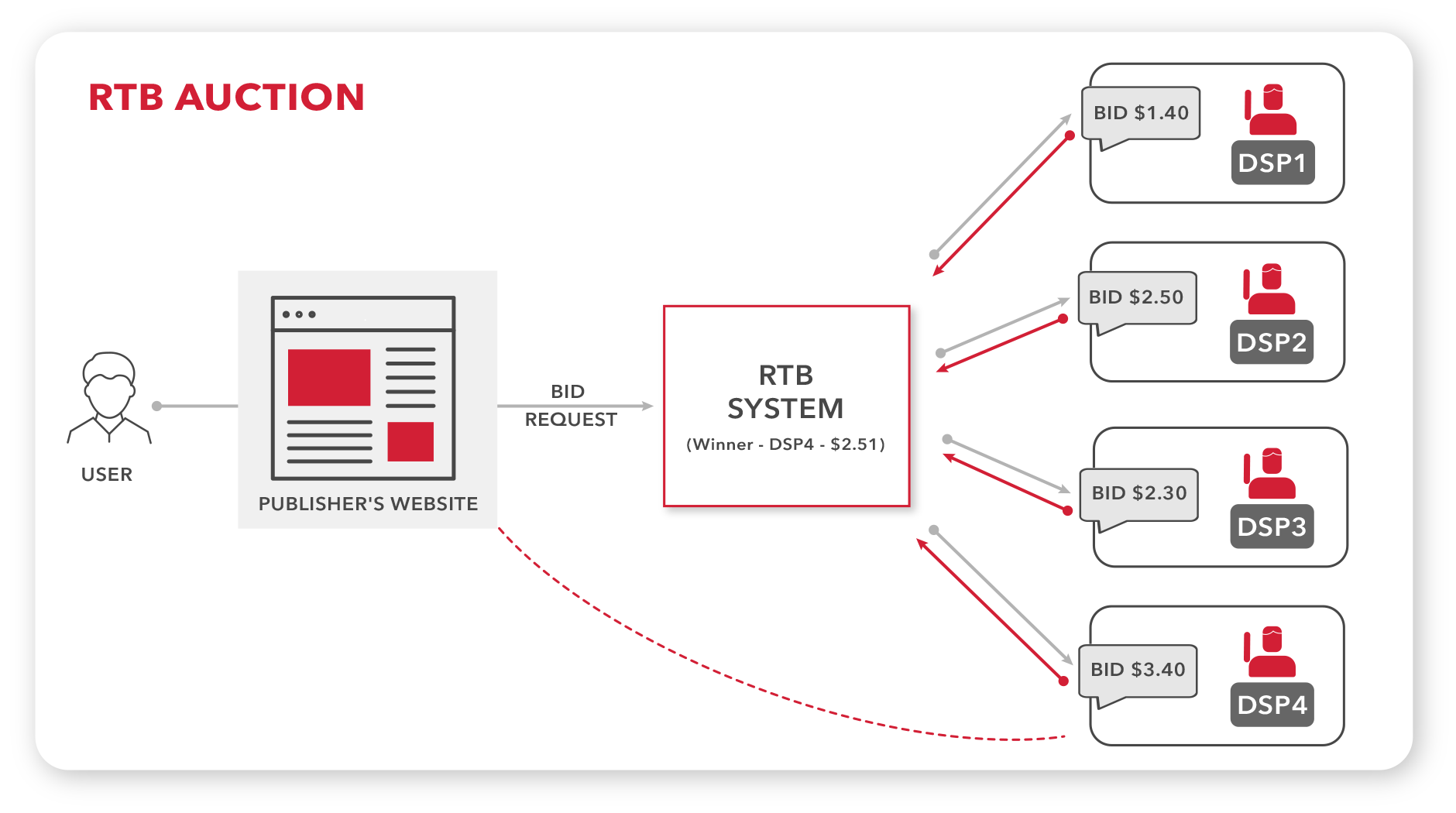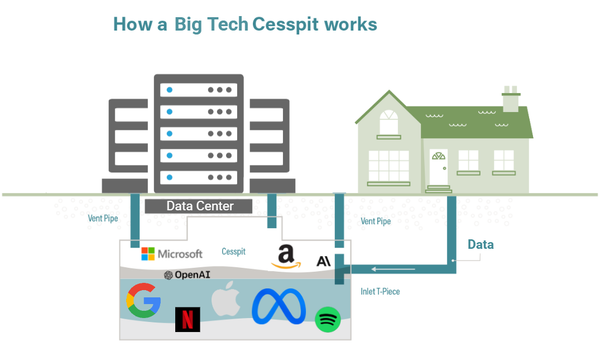Know Your Enemy - pt 1: Google
This is the first in a series of blog posts to inform you about the main players in big tech, and why they should be avoided.

Google has become synonymous with internet search and digital services. But behind this convenient facade lies a complex system of data collection that tracks your every move online.
This post will inform on Google's founders, its history, expose how it operates, and show why its practices are disasterous for privacy, the environment and some communities. We also point to what alternatives you can use to reclaim control over your data.
Billionaire watch: Who owns / runs Google
Founders & main shareholders:
Larry Page

Net worth of approximately $210 billion (as of 2025)
Sergey Brin

Net worth of approximately $196 billion (as of 2025)
Eric Schmidt

Net worth of approximately $43 billion (as of 2025)
Current CEO
Sundar Pitchai

Net worth of approximately $1 billion (as of 2025)
How big is Google?
Google has a parent company called Alphabet Inc. (set up to own the various parts of the Google empire, listed below).
That’s bigger than some large countries (e.g. Australia’s GDP is $1.7 trillion), and is a fair comparison of the UK’s GDP of $3.8 trillion. Still think your personal data doesn’t have value?
What products does Google own?
- Google search
- YouTube (acquired 2006)
- DoubleClick (acquired 2008)
- Google Ads
- Google Analytics - used by websites to track user behaviour
- Chrome browser
- Gmail
- Android mobile OS (& the Google Play Store – for apps, & Google Pixel mobile phones)
- Google Maps
- Waze (acquired 2013)
- Google Drive
- Google Docs
- Google Gemini AI (Google DeepMind – acquired 2014)
- Firebase - used for authentication and push notifications on Android phones
- Nest (home smart device)
- Fitbit (wearable smart device)
- Google Cloud (cloud infrastructure like AWS or Azure)
- Google Classroom
- reCAPTCHA
See what we mean about them being everywhere? It’s amazing that they were allowed to develop into such a monopoly. And even creepier when you consider what their business model really is.
The Extent of Google's Data Collection
Google doesn't just collect data from its core products like Search and Gmail - it gathers information across an entire ecosystem:
- Every internet search you ever make
- Contents of your Gmail messages
- YouTube viewing history
- Location data through Maps and Android devices
- Browsing activity via Chrome
- Files, Contacts & calendar events stored in Drive
- Info you type into Gemini AI
- Even voice recordings through Google Assistant
Here's a great article explaining the full extent of what you're allowing Google to know about you. And how they got busted recently for data harvesting without consent.
This creates a comprehensive (and permanent) PROFILE of your interests, habits, and whereabouts - a digital shadow that follows you across the web.
This wikipedia article has a lot of information about profiles and targeted advertising, e.g:
"Google uses its display network to track what users are looking at and to gather information about them. When a user goes to a website that uses the Google display network, it will send a cookie to Google, showing information on the user, what they have searched, where they are from, found by the IP address, and then builds a profile around them, allowing Google to easily target ads to the user more specifically."
And why would they want to do that? Because:
Google is an advertising business
Do any of their public-facing products have ‘advertising’ in the title? No. And yet, for all the products that they provide, their actual business sector they operate in is advertising. Their core business is Google Ads, but you don’t see that, you only see Search, Youtube, Chrome, Gmail etc.
Round about the year 2000 they invented a new business model, surveillance capitalism, that would change advertising forever. They invented targeted advertising based on user behaviour.
Where do they get the ‘user behaviour’ data from? Initially from Google Search, and then as time went by they offered more products so they could collect more behavioural data. That is the sole purpose of the products. Of course they have to work well, so you continue to use them. For example your searches would be more relevant because they were referencing your profile. However their real business purpose is to harvest (and store in a permanent profile) your behavioural data and sell access to you for advertisers
Definition: Behavioural Data
What topics you search for, who you contact, what web pages you visit, what you buy, what you write, what your interests are, where you’re going, who long you dwell on web pages, what device you’re using and (worst of all) your location, with IP address or physical location, or both.
What’s wrong with advertising?
Potentially nothing, but this new form of targeted advertising based on data harvesting has had unforeseen consequences. For example, the RTB system.
The RTB system: ‘the biggest data breach in history’

RTB stands for Real Time Bidding and is the engine that powers Google’s new type of advertising (yes, they spawned RTB too). It takes the form of an auction, and these auctions happen billions of times per second, all over the world – it is totally automated.
When you visit a web page (with your ad blocker switched off) there is a very short delay as the page loads. During that delay hundreds of advertisers have taken part in an automated auction for the right to place the ad in front of you. The advertisers are not sold just your specific data, with your name on it, but instead are bidding on you as part of a ‘category’. The category might be something like “Asian female, middle aged, with interest in sports, has visited this page at least twice in the last six months”.
Because you’re grouped in with other such people, Google can ‘pretty much’ truthfully say that they are ‘not selling your data’. ‘Pretty much’? If the data was only used for advertising and left in this ‘aggregated’ form, then they would be right. What they are selling is ‘access to you’ for advertisers. And, whilst creepy, doesn’t sound that bad, right?
However, as the ICCL has reported, the RTB system amounts to THE BIGGEST DATA BREACH IN HISTORY, and it’s still ongoing, day after day.
How is the RTB system a data breach?
Why classify it as a data breach when the data is anonymised in ‘category’ clusters and is only for an advertiser to show you an ad? OK…. are you sitting down….
- not only the winner of the auction gets access to the category data set, everyone taking part does, and
- not only advertisers take part – anyone can pose as an advertiser, and Data Brokers do exactly that, and
- the category data can easily be ‘de-anonymised’ to tie to you specifically
You’re probably way ahead of me now and can see how this system can be misused. And you’re right, even before you know the full $500 billion extent of the Data Broker business: ‘bad actors’ (as in ‘malicious entities’ such as authoritarian governments, not e.g. Ben Affleck) can, and do, hire data brokers to pinpoint the location of people they want to cause problems for. Read up on this threat here, and here is a great article describing the general problems with RTB.
Google and the FBI / NSA
Post 9/11 the Patriot Act was passed in the USA and this meant going all out on surveillance. Thanks to Edward Snowden we know that big tech was very much a part of this:
"TIA was shifted to the NSA, and it became the precursor to Prism, the infamous surveillance program revealed by Snowden in 2013.65 Prism involves direct NSA access to the servers of major internet companies including Google, Apple, Microsoft, Facebook, YouTube, Skype, and Yahoo."
So another unfortunate byproduct of Google's new targeted advertising empire is that security agencies such as the NSA (and any other government agency e.g. Russia and China) can access the giant troves of behavioural data that washes about in the RTB system. Read up here on how the NSA was forced to admit this in 2024.
A brief history of Google
Don’t be evil
OK wait lets back up a bit for a minute and review how Google became the behemoth monopoly it is today. Didn’t they start out all ‘nice’?
Founded in 1998 by Larry Page and Sergei Brin, they made a better search engine than everyone else that used their ‘Page Rank’ algorithm. It was better, but it became much better when they discovered that the ‘digital exhaust’ left behind by peoples’ searches could be used to personalise the search results, if they collected that exhaust into permanently stored profiles.
Even as they realised this they still did not want to use ads in the search product. Page and Brin were purist techies and were against the idea in principle, or so the story goes. The motto of the company at the time was ‘Don’t be evil'.
Enshittification begins
However their new CEO in 2001, Eric Schmidt, persuaded them to introduce ads due to pressure from investors to make a profit. And the rest is history - once they had perfected their algorithms to use the behavioural data to target ads - their profits skyrocketed. Users were unknowingly providing the raw material for the product for free, and with no ‘cost of sale’ their advertising business turned out to be the most profitable product in history. A new business model was born: surveillance capitalism.
The pattern of starting out idealistic and then bowing to investor pressure is called Enshittification, as coined by Cory Doctorow. He has a book out on the subject. In summary it has three stages: 1. be nice to users and lock them in, 2. start to ignore users and focus on business accounts, 3. start to ignore both users and busineses and focus solely on extracting as much profit as possible for shareholders.
Relentless acquisitions and executions
A key part of the big tech playbook is to ensure you crush all competition. The easiest way to do that is to buy them. You then either boost the product to harvest more data e.g. YouTube, or you shut down that product. Check out https://killedbygoogle.com for all the victims of big tech 'innovation'.
As of March 2025 Google (Alphabet) has acquired over 200 companies, as per this Wikipedia article.
Scandals - it’s all spyware
Over the years it has gradually come to light that Google is scraping everything users do in their products - links to further reading are provided above in the 'Extent of Google's Data Collection' section. The most shocking was the revelation that they are scanning Gmail accounts. Surely your email is private? Wrong. How about the contents of your Google Drive? They’re scraping that too.
Scraping for what? At first it was just to power their core advertising business, as explained above. More and more data enabled creepier and creepier micro-targeting of ads. Advertisers paid bigger and bigger prices in the RTB auctions to take advantage of Google’s secret data harvesting. But eventually, after the acquisition of DeepMind in 2014, they needed more and more user data to train their AI models.
Gemini AI
Google’s latest AI LLM (Large Language Model, like ChatGPT) is Gemini. It serves a dual purpose: to use all the user data in it’s training, creating an LLM to challenge ChatGPT’s dominance in the market, and to further gather user data for Google’s core advertising business.
If the RTB system didn’t freak you out in terms of flagrant disregard for data security and privacy, then AI (as big tech have developed it) is even worse. It’s the big tech endgame: the mega monster that feeds on colossal amounts of energy, water and data, and gathers data.
Google and Military tech
The world wide web itself, and startups like Google, came from funding from the government. In 2025 it's coming full circle, as Google (alongside the other big tech firms very much now involved in politics) scramble to provide tech for the Military. This is after they tried to start this in 2017 via Project Maven but staff uproar forced them to cancel their involvement.
Google data centres - environmental and ethical problems
The truth about just how much drinkable fresh water is consumed by data centres came to light when Google was forced to disclose this information in 2024. Activists in the local community of Cerrillos, a drought-stricken (!) area of Chile, campaigned relentlessly and in the end Google 'paused' its plans. Google tried to intimidate the community, but had to reveal that
"the datacentre would consume more than one thousand times the amount of water consumed by the entire population of Cerrillos, roughly eighty-eight thousand residents, over the course of a year." (Quote from the book Empire of AI, by Karen Hao, chapter 12 'Plundered earth')
Chile is a big source of copper and lithium, much in demand by the tech industry. Google (and other big tech firms) are happy to ignore the environmental concerns of mining in the Global South, and shove hyper-scale datacentres there, whilst providing pretty much nothing for the locals. Know your enemy.
Support Foxglove's campaign against the vast scale of energy and water use in proposed data centre builds in the UK:
Evading the giant squid - de-Googling

I remember years ago hearing Goldman Sachs described as a ‘giant vampire squid’. That description could be applied to Google (and the other big tech companies). Their tentacles have spread far and wide, making them very hard to avoid.
There’s no one magic bullet (like “sign up for this anti-Google account”) – the only way around Google is to swap out the different products individually. We list all the alternatives on our site - so start running them in parallel with your Google products today, and eventually you can cut off tentacles one by one.
It’s easy to find alternatives
Start with Search, then Chrome, and then work your way towards Gmail. The first two you can just swap out today and not look back, but Gmail is more difficult. Choose an alternative from that link (they’re all E2EE and vetted) and run it in parallel for a bit. Eventually you can ditch the Gmail account.
The Big Tech Walkout 2025
Those steps are all part of the Big Tech Walkout 2025, the full programme for which is listed here:
On our site you can go further and find alternatives for Google Drive and Docs, Maps and Youtube.
You can also follow this 5-week de-Google challenge programme which really makes it clear how you can de-Google your life.
The mask is off
Now you know the main enemy, the one that invented the creepy business model that has corrupted the internet for the last twenty five years. You’ve seen the face under the mask. And now you know better than to feed the beast.
Knowledge is power, and as Carissa Veliz explains in her book, "Privacy is Power"
References
Book: The Age of Surveillance Capitalism, Shoshana Zuboff
Wikipedia articles: Google , Targeted Advertising, RTB system
Book: Don’t Be Evil, Rana Foroohar
Book: Privacy is Power, Carissa Veliz
Book: Empire of AI, Karen Hao
Articles: anything by Cory Doctorow




